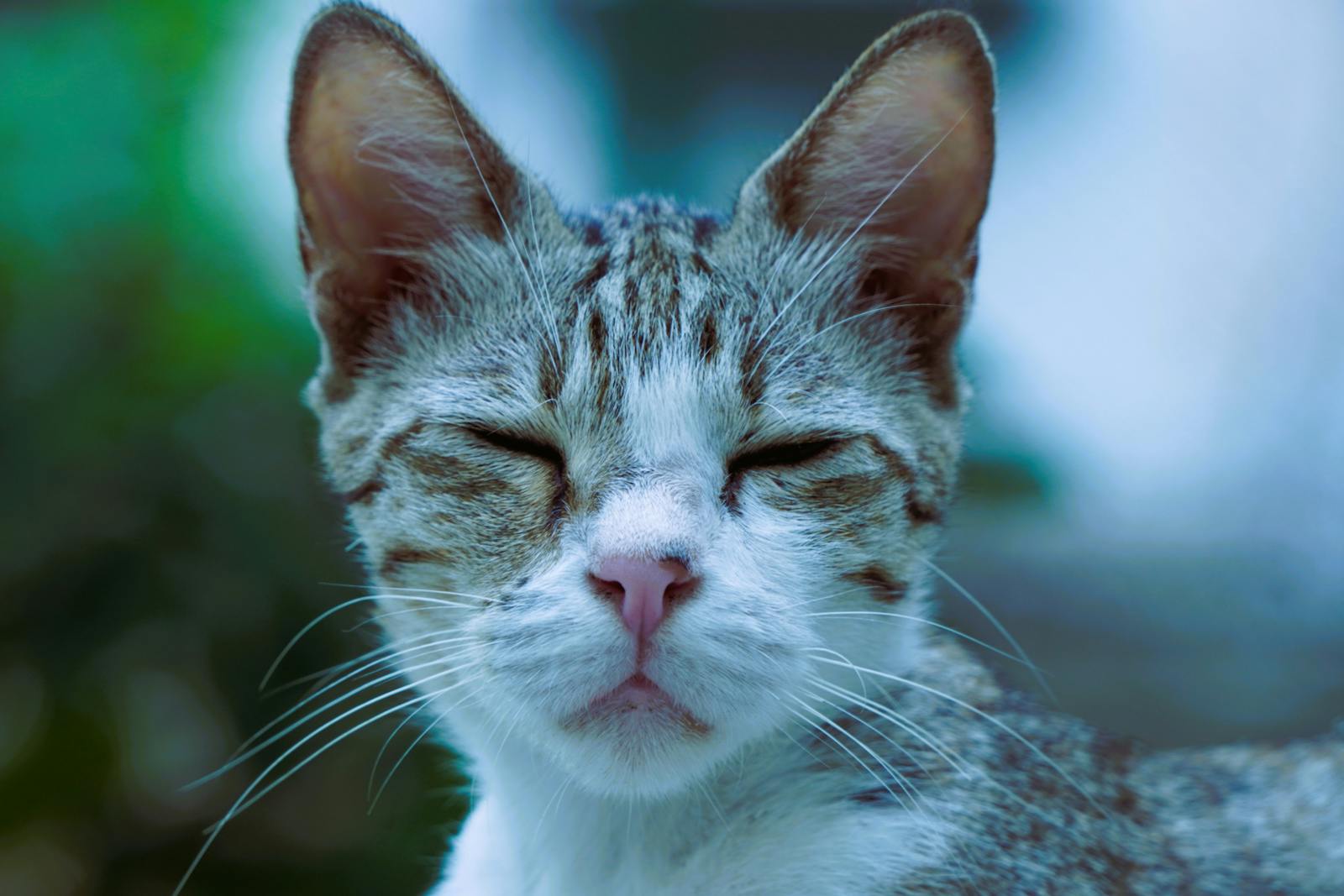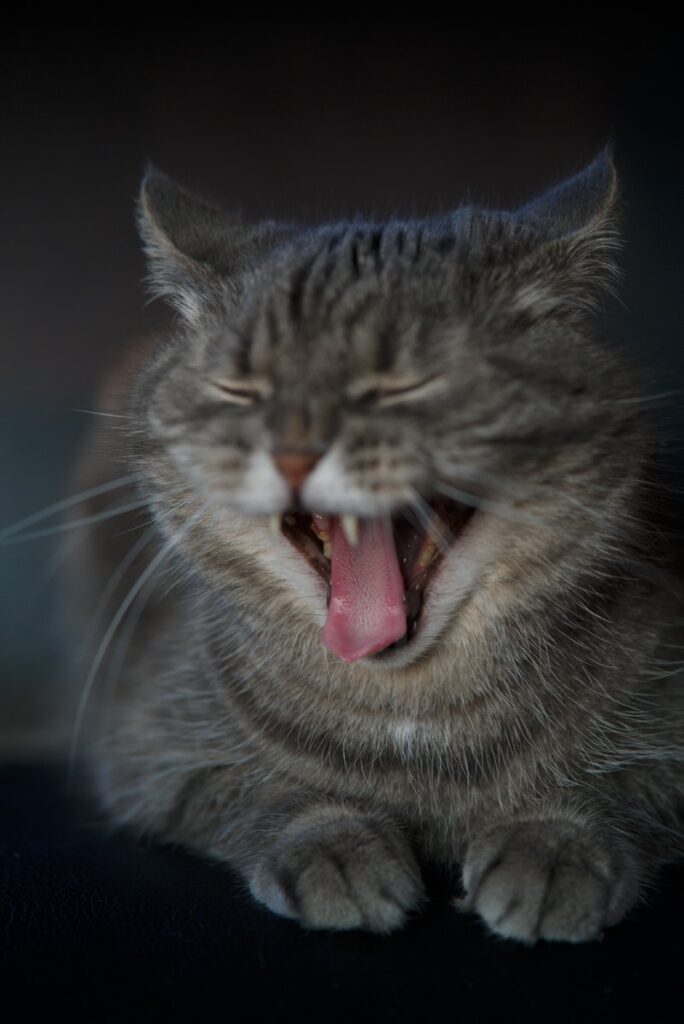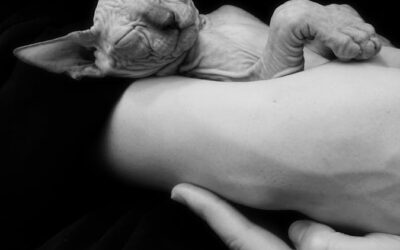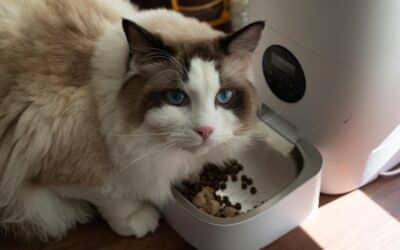Have you asked yourself, why does my cat keep sneezing?
Cats are curious creatures known for their quirky behaviors, but when your feline friend starts sneezing repeatedly, it’s natural to worry. Occasional sneezes are generally harmless, but frequent or excessive sneezing could indicate an underlying issue with your cat’s health.
This blog dives into the common causes of sneezing in cats, potential symptoms to look for, and when to seek veterinary care. Whether you’re a new cat owner or a seasoned cat parent, understanding the reasons behind your cat’s sneezing can help you ensure their well-being.
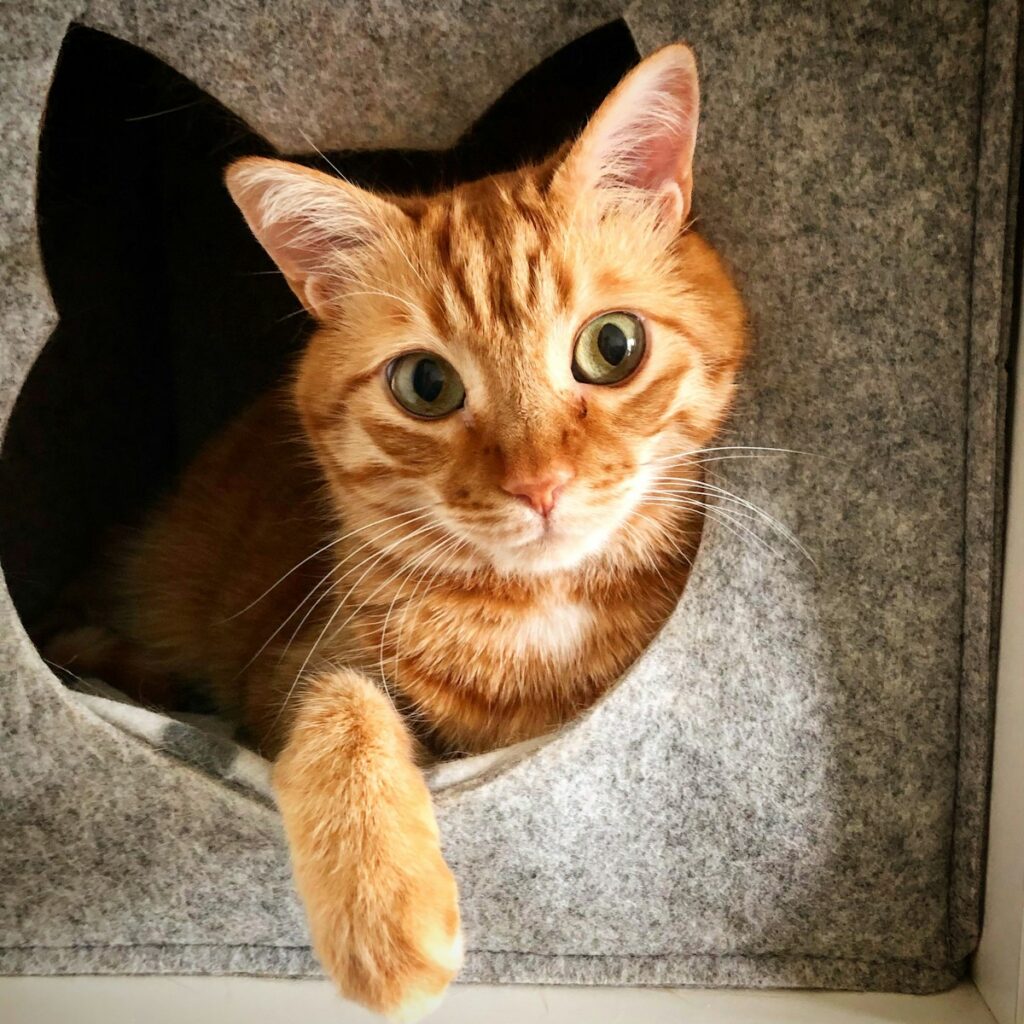
Why Regular Vet Check-Ups Are Crucial for Your Cat
Regular vet visits are essential to ensuring your cat stays healthy and happy. Here are the key reasons why keeping up with routine check-ups is so important:
1. Early Detection of Health Issues
Cats are masters at hiding discomfort or illness. Routine check-ups allow veterinarians to spot signs of underlying health problems that might go unnoticed, such as kidney disease, diabetes, or dental issues. Early detection leads to timely treatment, improving outcomes and often reducing the cost and complexity of interventions.
2. Preventative Care
During regular visits, your vet can administer vaccinations and preventative treatments like flea, tick, and worm control. They can also advise you on proper nutrition and exercise, helping to prevent common feline health issues such as obesity or joint problems.
3. Monitoring Aging and Chronic Conditions
As cats age, they become more prone to chronic conditions such as arthritis or hyperthyroidism. Regular check-ups allow your vet to monitor changes in your cat’s health and adjust their care plan as needed, ensuring your senior cat’s comfort and well-being.
4. Dental Health Maintenance
Oral health is a critical yet often overlooked aspect of a cat’s overall health. Dental disease can lead to pain, difficulty eating, and even systemic infections. Routine veterinary care includes dental exams and cleanings to keep your cat’s teeth and gums in optimal condition.
5. Establishing a Health Baseline
By visiting the vet regularly, you can create a comprehensive health history for your cat. This baseline helps your vet quickly detect deviations from the norm, enabling faster diagnosis and treatment when issues arise.
6. Behavioral Insights
Sometimes changes in behavior, such as increased aggression or decreased activity, can be linked to underlying health concerns. Regular vet visits offer an opportunity to discuss any unusual behaviors and explore potential causes with a professional.
By staying on top of routine veterinary care, you invest in your cat’s long-term health and happiness, ensuring they continue to bring joy to your life for years to come. Don’t wait for a problem to arise—proactive care makes all the difference!
Why Is My Cat Sneezing?
Sneezing in cats can result from a range of causes, from mild irritants to more serious health concerns. Below are the most common reasons your cat may be sneezing frequently.
1. Irritants in the Environment
Just like humans, cats can sneeze due to irritants in their environment. Common triggers include dust, strong scents (like perfume or cleaning products), or cigarette smoke. Cat litter can also cause sneezing, particularly if it’s dusty or scented. This type of sneezing is usually occasional and resolves once the irritant is removed.
What to Do
- Ensure your cat’s living environment is clean and well-ventilated.
- Opt for dust-free or unscented cat litter to minimize irritation.
2. Viral or Bacterial Infections
Respiratory infections are a leading cause of sneezing in cats. Feline herpesvirus and feline calicivirus, for instance, are common culprits of upper respiratory infections (URIs) in cats. These infections are highly contagious, especially in multi-cat households or shelters.
Sneezing due to respiratory infections is often accompanied by other symptoms like a runny nose, nasal discharge, watery eyes, fever, or even trouble breathing.
Common Symptoms to Watch For
- Frequent sneezing or repeated sneezing episodes
- Nasal discharge that is clear or yellowish
- Watery or red eyes
- Lethargy, fever, or dehydration
What to Do
- If your cat is showing only mild symptoms, you can keep your cat comfortable by ensuring they stay hydrated and help keep your cat’s nasal passages moist. You can use a humidifier or gently clean their nose with a damp cloth.
- For severe symptoms like difficulty breathing or excessive nasal discharge, consult your veterinarian immediately.
3. Fungal and Bacterial Infections
Fungal infections, though less common, can also cause sneezing in cats. One example is cryptococcosis, a fungal infection caused by inhaling fungal spores from the environment. Similarly, bacterial infections resulting from untreated respiratory issues may lead to sneezing and inflammation in your cat’s nasal passages.
Symptoms
- Chronic sneezing with nasal discharge
- Swelling around the nose or upper jaw
- Visible discomfort
What to Do
- Fungal or bacterial infections typically require veterinary care and may involve antifungal or antibiotic treatments.
4. Chronic Respiratory Conditions
Some cats, particularly young or elderly cats, may suffer from chronic respiratory conditions like chronic rhinitis. Chronic rhinitis occurs due to long-term inflammation of the nasal cavity, often caused by previous upper respiratory infections or other viral infections.
Signs of Chronic Respiratory Issues
- Frequent sneezing over an extended period
- Chronic nasal discharge
- Difficulty breathing through the nose
What to Do
- While there’s no outright cure for chronic respiratory conditions, managing symptoms through medication or lifestyle adjustments, like maintaining a stress-free indoor environment, can significantly improve your cat’s quality of life.
5. Dental Disease
Surprisingly, dental issues can also trigger sneezing in cats. Dental disease, particularly in the upper jaw, can lead to inflammation and infections that extend into the nasal cavity. This often results in sneezing as a secondary symptom.
How to Identify Dental Issues
- Bad breath
- Swelling around the face
- Difficulty eating or chewing
- Visible inflammation of the gums
What to Do
- If you suspect dental disease, schedule a dental checkup for your cat. Regular dental cleanings and at-home dental care are key to preventing these issues.
6. Foreign Objects in the Nasal Passages
Cats are curious by nature, and sometimes, small foreign objects like grass seeds or bits of debris may become stuck in their nasal passages. This can irritate the nasal passage and lead to sneezing as the body attempts to dislodge the material.
When to Seek Help
- If you notice your cat sneezing blood, it’s crucial to visit a vet. Foreign objects may require professional removal.
7. Allergies
Although rare compared to humans, some cats can develop allergies to substances like mold, pollen, or even specific foods. Allergic reactions may include sneezing along with other respiratory symptoms, such as a cat’s nose and watery eyes.
What to Do
- Identifying and eliminating allergens from your cat’s environment is key. Your vet may also recommend allergy testing or antihistamines.
When to Worry About a Sneezing Cat
Occasional sneezing usually isn’t a cause for concern, but there are times when it’s essential to seek veterinary care. Contact your veterinarian if you notice the following:
- Frequent sneezing that persists for several days
- Nasal discharge, particularly if it’s yellow, green, or bloody
- Difficulty breathing, coughing, or wheezing
- Other respiratory symptoms like lethargy or fever
Early intervention is especially critical for a weak cat’s immune system, such as those infected with the cat flu or feline immunodeficiency virus (FIV) or senior cats.
Preventing Irregular or Worrisome Sneezing in Cats
Sneezing in cats can be caused by a variety of factors, from harmless irritants to more serious underlying health conditions. To reduce the chances of irregular or worrisome sneezing, consider the following preventative measures:
Maintain a Clean Environment
Dust, mold, and other allergens can trigger sneezing in cats. Regularly vacuum your home, clean surfaces, and avoid using heavily scented cleaning products that may irritate your cat’s sensitive nose. Providing proper ventilation in your living space can also help reduce airborne irritants.
Use Cat-Friendly Litter
Certain types of cat litter, particularly those with strong fragrances or dusty compositions, can irritate your cat’s respiratory system. Opt for unscented, low-dust, or natural litter products to minimize the risk of sneezing.
Avoid Smoke or Harsh Chemicals
Tobacco smoke, aerosols, and strong chemicals can be harmful to your cat’s respiratory health. Keep your cat away from such irritants to prevent unnecessary sneezing and ensure their overall well-being.
Ensure Proper Hydration
Dehydration can lead to dry nasal passages, increasing the likelihood of sneezing. Make sure your cat has constant access to fresh, clean water to support their respiratory health.
Keep Up with Vaccinations
Many cases of chronic sneezing are linked to upper respiratory infections. Vaccines help protect your cat from common viruses such as feline herpesvirus and calicivirus, reducing the risk of infection and related mild symptoms.
Monitor for Allergies
Pay close attention to your cat’s reactions to their food, environment, and other potential allergens. If you suspect allergies, consult with your veterinarian for advice on dietary changes, environmental adjustments, or possible treatments.
Schedule Routine Vet Visits
Regular check-ups allow your veterinarian to detect and address potential health issues early, including those that may be contributing to sneezing. Preventive care ensures your cat remains healthy and avoids unnecessary discomfort.
By implementing these preventative measures, you can help create a safe and comfortable environment for your cat while reducing the risk of irregular or worrisome sneezing. If sneezing persists or is accompanied by other concerning symptoms, always seek professional veterinary advice.
Top Products and Brands for Cats with Recurring Sneezing
When dealing with recurring sneezing in cats, it’s essential to consider products that promote better respiratory health, improve air quality, or support overall wellness. Below are seven top products and brands recommended for cats experiencing frequent sneezing. Be sure to consult your veterinarian before introducing new products.
Feliway Classic Diffuser
Feliway is designed to reduce stress in cats, which can sometimes contribute to sneezing due to feline herpesvirus or other stress-related conditions. The diffuser emits calming pheromones, helping create a peaceful environment.
L-Lysine Powder for Cats by Vetoquinol
This supplement supports a healthy immune system and is particularly beneficial for cats with viral infections like feline herpesvirus, a common cause of sneezing. It’s palatable and easy to mix with food.
Buy Vetoquinol L-Lysine Powder
PetSafe Drinkwell Platinum Pet Fountain
Proper hydration is essential for respiratory health. This pet fountain encourages cats to drink more water by providing a continuous flow of fresh, filtered water.
Purchase PetSafe Drinkwell Platinum Fountain
PureBites Freeze-Dried Cat Treats
Feeding a high-quality diet with nutritious treats supports overall health, including the immune system. PureBites treats are made with a single ingredient, making them ideal for sensitive cats.
Get PureBites Freeze-Dried Cat Treats
Honeywell HPA300 Air Purifier
An air purifier with HEPA filtration can reduce allergens and irritants in your home, ensuring your cat breathes cleaner air. This is particularly helpful if dust or pollen is contributing to the sneezing.
Shop Honeywell HPA300 Air Purifier
VetRx Respiratory Relief for Cats
VetRx is a natural remedy that may help relieve nasal congestion and support respiratory health in cats. It’s easy to administer and often used for minor respiratory symptoms.
Yeowww! Catnip Toys
Play is essential for stress reduction, which can help improve a cat’s immune system. Yeowww! catnip-filled toys are high-quality and adored by most cats, providing both entertainment and stress relief.
These products can help support a healthier environment and lifestyle for your cat, reducing the frequency of sneezing episodes. Always follow product instructions and consult your veterinarian for advice tailored to your cat’s specific needs.

Ensuring Your Cat’s Health | Why Does My Cat Keep Sneezing?
Understanding why your cat is sneezing can be the first step in addressing their health needs. Whether it’s a mild irritant or a more serious condition like an upper respiratory infection, paying attention to other symptoms and seeking timely veterinary care can ensure your cat stays happy and healthy.
For cats prone to respiratory issues, consider keeping them indoors, maintaining a clean and stress-free living environment, and ensuring they’re vaccinated against common infections like feline calicivirus and herpesvirus.
Got concerns about your cat’s sneezing? Don’t wait until the symptoms escalate. Reach out to your vet and keep your feline friend purring happily.
